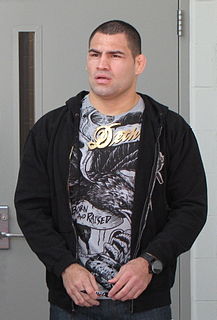A Quote by Chris Rea
Once I faced the fact I was going to deal with illness for the rest of my life, I got on with what I really wanted to do.
Related Quotes
There was not an episode [on Perception] that didn't deal with some form of mental illness, either my own, or I would be the first to notice if a defendant did a certain thing that perhaps he was suffering from this. And so we got to do some really outspoken stuff for what was otherwise a crime-solving show. And it was just a really good team.
There's certain countries that you can't get in if you've got a criminal background record. There's certain jobs in the States that you can't get because you've got a criminal background record. That follows you the rest of your life... and that's something you have to deal with the rest of your life.




































